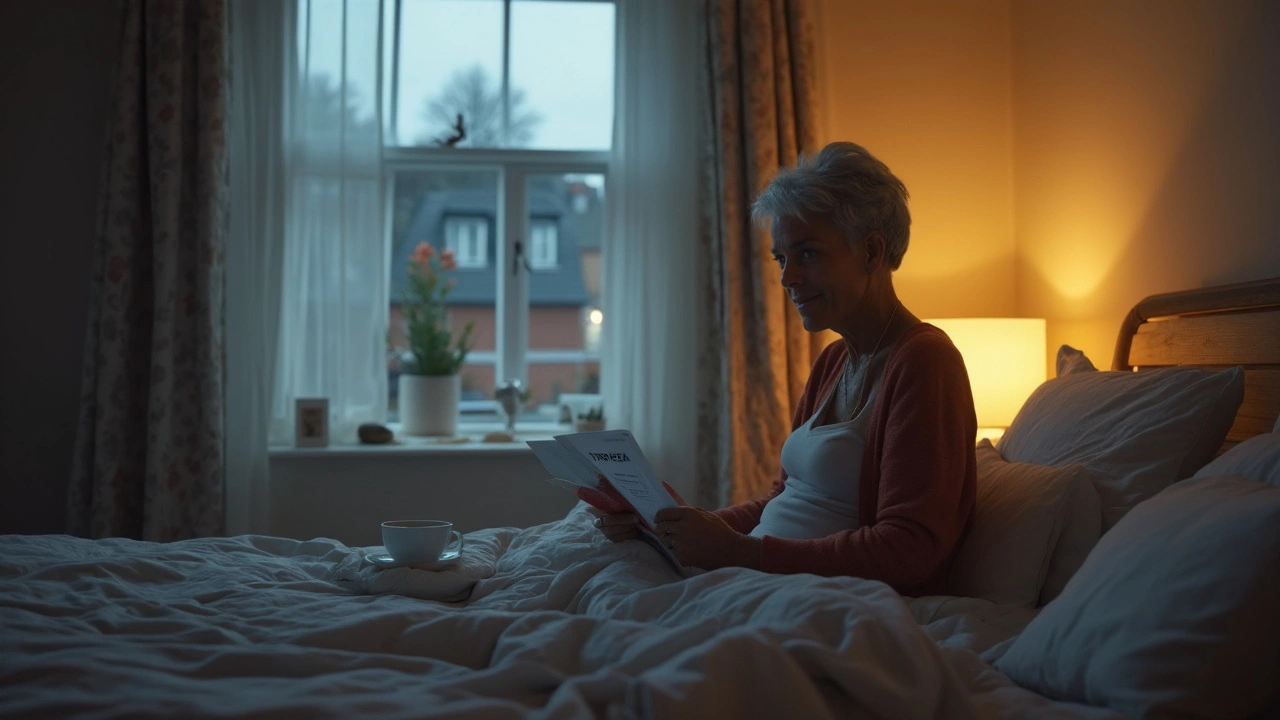Ever taken an allergy pill and suddenly felt ready for a nap? That’s not a coincidence – some antihistamines are built to make you drowsy, and many people use them as cheap, over‑the‑counter sleep aids. If you’re curious about which ones actually work, what side effects to watch for, and how to get them without getting scammed, you’re in the right place.
Antihistamines block histamine receptors in your body. Histamine is the chemical that keeps you alert, so when a drug blocks it, you can feel a wave of calm or sleepiness. First‑generation antihistamines like diphenhydramine (Benadryl) and doxylamine (found in Unisom) cross the blood‑brain barrier easily, which is why they’re notorious for causing drowsiness. Second‑generation options such as loratadine (Claritin) or cetirizine (Zyrtec) stay mostly in the periphery, so they relieve allergies without pulling you into dreamland.
Because they’re easy to find at any pharmacy, many people reach for the drowsy versions when they have trouble sleeping. They’re generally safe for short‑term use, but they can leave you groggy the next morning, especially if you’re over 65 or have liver issues. Knowing the difference helps you avoid unwanted hang‑overs while still getting the rest you need.
The first step is to decide if a drowsy antihistamine fits your lifestyle. If you only need occasional help – say, a night after a big event – diphenhydramine is a solid choice. Take the recommended 25‑50 mg about 30 minutes before bed and avoid alcohol or other sedatives. Doxylamine tends to be a bit stronger, so it’s best for people who need a deeper sleep, but the same caution about next‑day grogginess applies.
If you’re looking for a night‑time aid that won’t make you feel like a zombie, consider a combination product that mixes a low dose of diphenhydramine with melatonin or a mild antihistamine like hydroxyzine (prescription only). These blends can give you the sleep push without the harsh crash.
Buying online in Australia? Stick to reputable pharmacies that require a prescription for any product that isn’t clearly labeled “OTC”. Check for a physical address, a clear privacy policy, and reviews that mention good customer service. Avoid sites that promise “cheapest ever” without proof of authenticity – fake pills are a real risk.
Finally, keep an eye on how you feel. If you notice persistent dry mouth, blurred vision, or trouble urinating, it might be time to switch to a non‑drowsy option for daytime allergies and save the sleepy pills for bedtime only.
Bottom line: drowsy antihistamines can be a handy, inexpensive sleep aid when used right. Choose the right one for your needs, follow dosage guidelines, and buy from trusted sources. Sleep well, wake up refreshed, and keep your allergy relief safe and effective.

Struggling with night-time itch that wrecks your sleep? This article breaks down hydroxyzine dosage for better sleep, focusing on when to take it, how to avoid grogginess, and how long you can use it safely. You'll get practical, real-world tips based on recent findings and expert insight. We cover side effects, how long hydroxyzine stays in your system, and what to watch for. If you need itch relief at night, discover how to use hydroxyzine effectively for a restful, itch-free sleep.
Read More